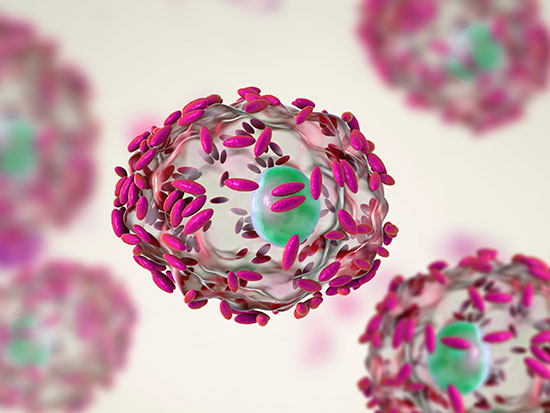 New data suggest that women testing positive for vaginitis or bacterial vaginosis may be at higher risk than normal for a sexually transmitted infection. A study published in the most recent issue of Clinical Infectious Disease by Barbara Van Der Pol, Ph.D., associate professor in the University of Alabama at Birmingham Division of Infectious Diseases, found that women who test positive for bacterial vaginosis had a greater likelihood of testing positive for chlamydia or trichomonas.
New data suggest that women testing positive for vaginitis or bacterial vaginosis may be at higher risk than normal for a sexually transmitted infection. A study published in the most recent issue of Clinical Infectious Disease by Barbara Van Der Pol, Ph.D., associate professor in the University of Alabama at Birmingham Division of Infectious Diseases, found that women who test positive for bacterial vaginosis had a greater likelihood of testing positive for chlamydia or trichomonas.
In addition, Van Der Pol and colleagues found that more women testing positive for bacterial vaginosis are actually seen at clinics specializing in sexually transmitted diseases compared to OB/GYN or family planning clinics.
“These findings reveal that STI and vaginitis may be more closely associated among at-risk women than we previously understood,” Van Der Pol said. “Clinicians should be aware of this and should be able and willing to test for both types of infections — regardless of the clinic type in which they practice.”
Trichomonas was the most prevalent STI detected in this study in both STD and non-STD clinics.
Van Der Pol says future work should delve further into the relationship between vaginitis and STI to better understand why being positive for one alters the chances of having the other. In addition, she says it is important to stress to clinicians and patients that complete testing, regardless of clinic type, is critical to providing the proper diagnosis and treatment for these infections.
“We know that some clinicians or patients may recoil at the idea of testing for STI in certain clinical settings, or may assume vaginitis is not a cause in others,” Van Der Pol said. “It is now feasible to test for both, regardless of clinic type, and our hope is that treating clinicians will take advantage of these powerful diagnostic tools to provide care that is well-informed.”
Van Der Pol is the director of the STD Laboratory at UAB. She has been involved in laboratory-based epidemiologic and behavioral research in the field of STI and HIV for more than 30 years.
Becton, Dickinson and Company (BD) funded the study, and BD Life Sciences – Diagnostic Systems manufactures the BD MAX™ System and the BD MAX™ Vaginal Panel and BD MAX™ CT/GC/TV assays that were utilized in this research.